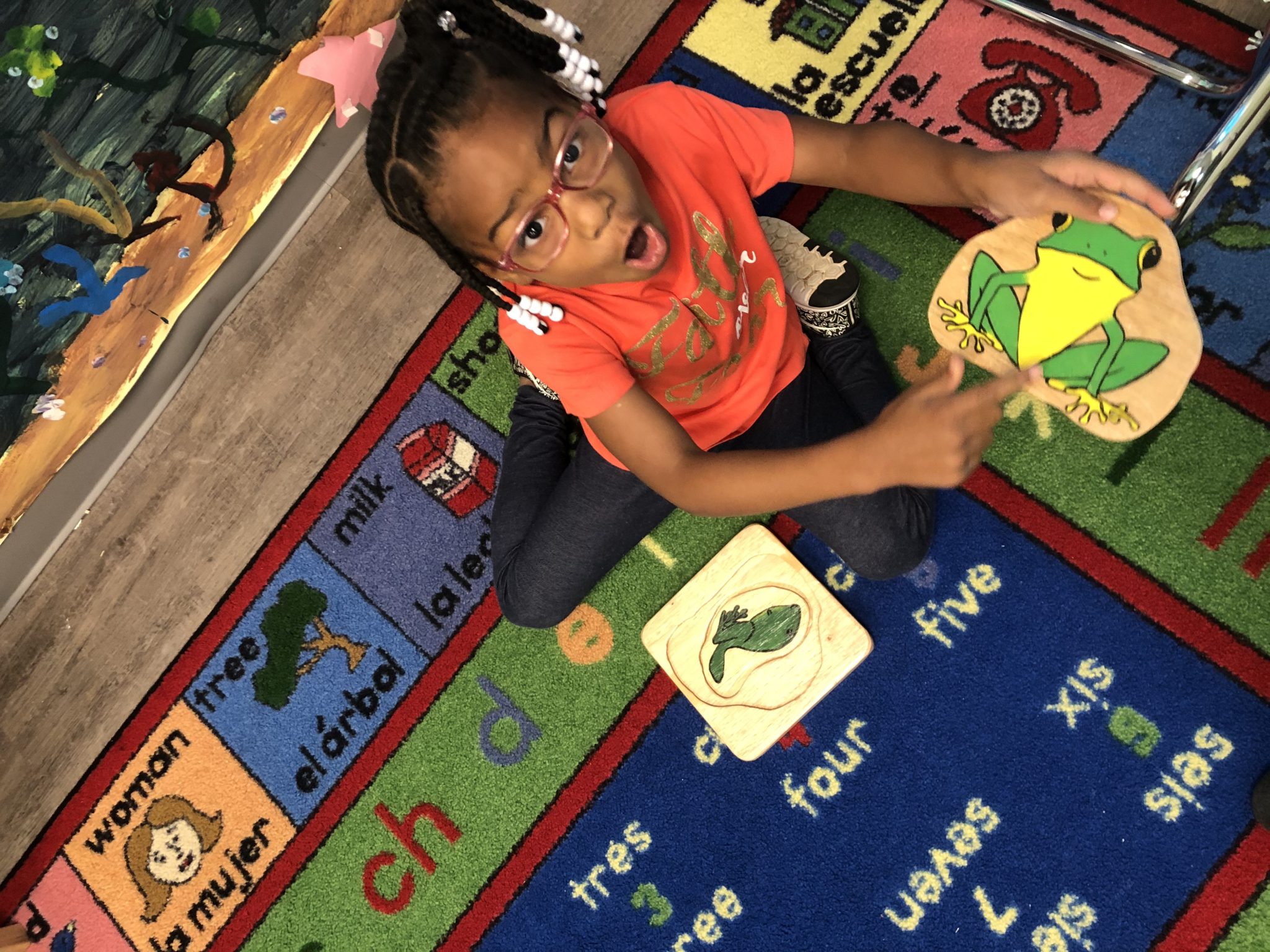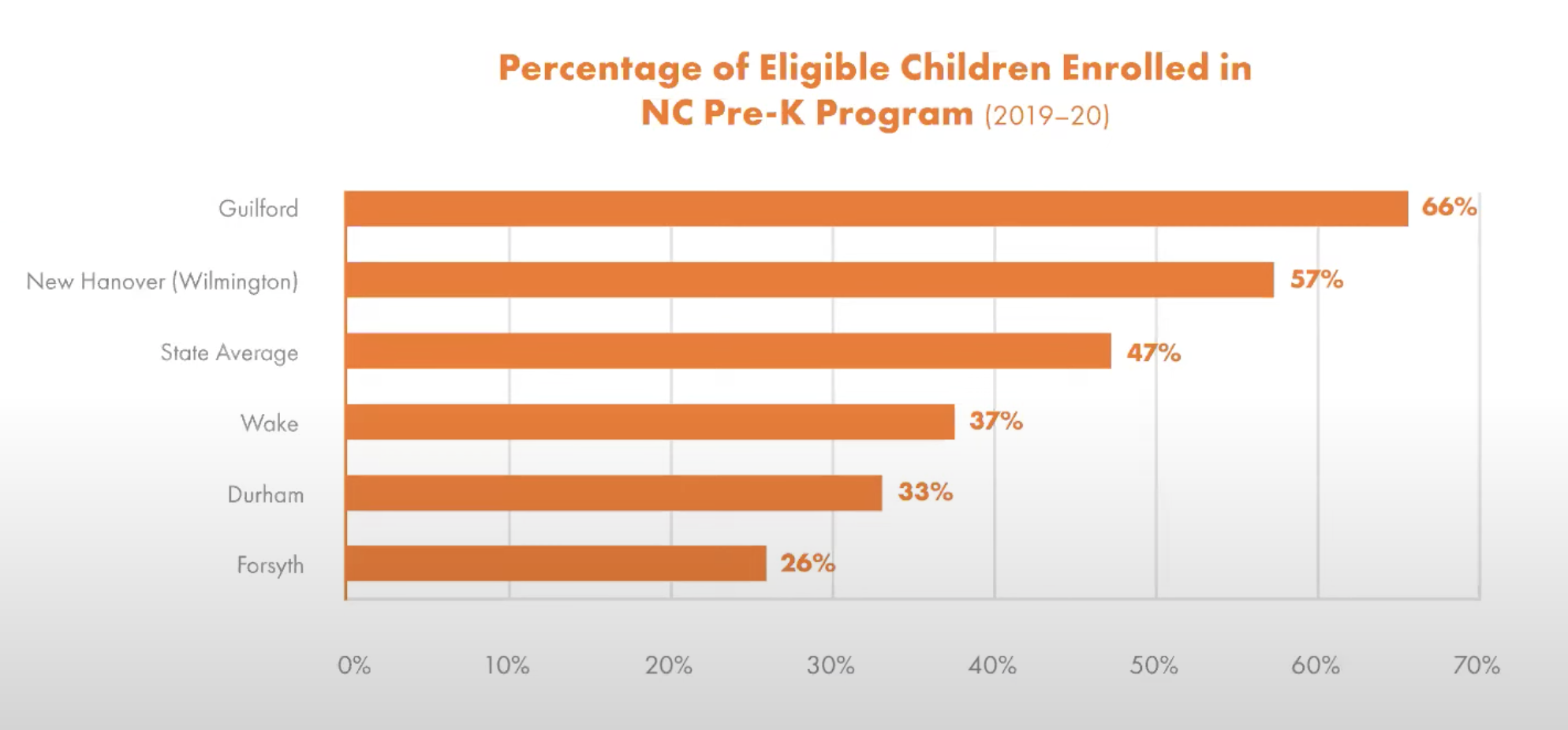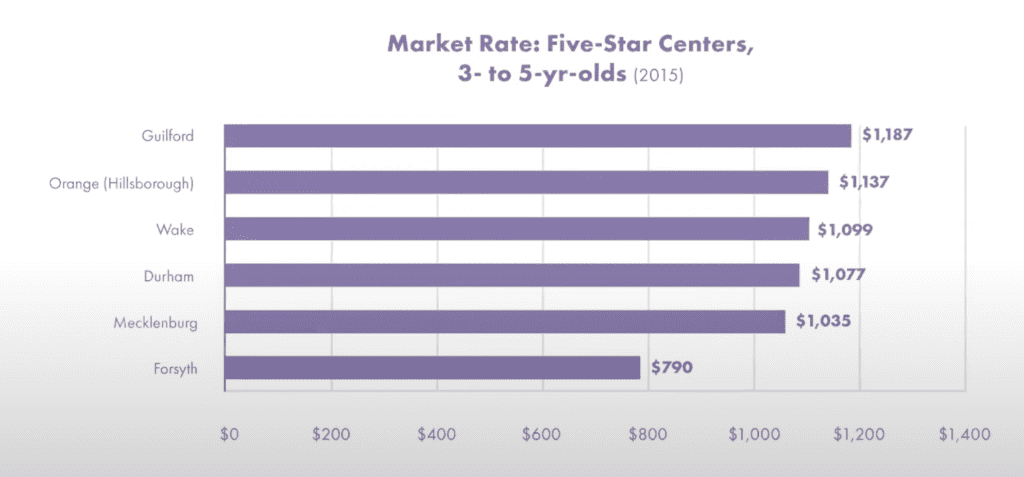Issues that 'really need the attention of the state'
Early Bird readers, hello again. Newcomers, welcome! If you were forwarded this email, you can sign up here to receive it every two weeks, and join our conversation on issues facing North Carolina’s young children and those who support them. If you’re already a subscriber, please help us reach more people by sharing this with your friends and co-workers interested in early childhood education.


On Wednesday, I facilitated a discussion on a Forsyth County task force’s plans to expand pre-K to all its 4-year-olds. I wrote about this task force, focused on early childhood education, last year, as well as the local community collaborative, the Pre-K Priority, that’s been advocating for more pre-K access since 2014.
After a $3.7 million county investment earlier this fall, the task force’s new report outlines a vision for strengthening the county’s pre-K system: higher standards and pay for teachers, family engagement and translation services for parents, and systems for data collection and oversight.
Many localities across the state — all with different approaches — have taken pre-K expansion into their own hands as statewide progress has stagnated. Even with state funds for more slots, the amount of money programs receive doesn’t cover the full cost. The access rate has remained at around 50% of eligible 4-year-olds in pre-pandemic years, or about 25% of all 4-year-olds. In Forsyth County, just 26% of eligible children attended NC Pre-K in 2019-20.


The report’s recommendations include establishing salary parity for pre-K teachers with public school teachers, strengthening the pipeline with outreach and pathways for high schoolers, and implementing consistent curricula, screenings, and transition supports in all pre-K classrooms.
“We have a unique pilot that involves the entire community,” said Louis Finney, CEO of Smart Start of Forsyth County.
State’s key role
Even with cross-community buy-in, a task force dedicated to early childhood, and an investment from county commissioners, the group still says advocacy at the state level is a top priority.
“There’s still some state-level areas, particularly around the NC Pre-K program, that we’re considering that really need the attention of the state to support our specific community,” Finney said on a webinar on the report Wednesday that I facilitated.
Local communities receive uneven amounts of funded slots and allocations for child care subsidy, Finney said.


Advice for others
Of course communities’ capacities and resources to fill in those gaps vary. After hearing the panelists talk about the components of the Forsyth plan, I was both excited for that community and thinking about the children and families in other communities that don’t have a Pre-K Priority.
So I asked what advice they have for others. Here were their answers:
- Talk to parents.
- Ask parents what they need and want for their families, said Traci Ross, CEO of Family Services. This might sound obvious, but isn’t always how systems are built.
- Ensure quality before expanding.
- Several members of the task force talked about supporting and retaining educators. Tricia McManus, superintendent of Winston-Salem/Forsyth County Schools, said having the same curricula and pay standards across public and private settings is a key part of ensuring all children have high-quality experiences.
- Get county commissioners on board.
- Forsyth County Commissioner Don Martin, who also chairs the task force, said county commissioners not only have opportunities to spend American Rescue Plan funds, but to advocate at the state level for needed changes.
- It’s not all about academics (from a superintendent).
- McManus made a point that stood out to me about a need to focus on social and emotional competencies before kindergarten: “We have years to make sure kids are learning how to read, but it’s those prerequisite skills that are so important,” she said.
We want to hear from you.
Early Bird reads: What we’re writing
The Healthy Social Behaviors project helps licensed child care centers reduce reliance on suspensions and expulsions
EdNC early childhood policy analyst Katie Dukes wrote about the Healthy Social Behaviors project, which since 2005 has been helping teachers in licensed child care centers manage children with challenging behaviors.
The Division of Child Development and Early Education started the program with the intent to reduce expulsion rates in early childhood settings.
Read how the program supports children, helps teacher retention, and could do more with more funding.
Your take, for goodness sake: EdNC perspectives
Perspective | How Rescue Plan funds are helping kids across North Carolina
Adam Sotak, co-director of community engagement at NC Child, gives examples of the ways local communities, like Forsyth, are using federal relief dollars to support young children, from early care and education to diaper supplies to literacy supports.
Sotak also includes a new tool from the Southern Economic Advancement Project to look up how those funds are being spent in other communities.
In other early learning news: What I’m reading
US Coast Guard to build $20M child development center at Base EC - From The Daily Advance
NAEYC ’22: Respond to challenging behaviors in young children by changing teacher perspectives - From K-12 Dive
Want resilient and well-adjusted kids? Let them play - From The Hechinger Report
Lack of child care forced her to delay cancer treatment. Then this Dallas group stepped in - From Fort Worth Star-Telegram
Staff shortages are crippling childcare centers across the U.S., and that’s only the beginning of the problem - From Fortune
What happens to family policies like child care, paid leave now? - From Deseret News
Research & Resources: Let's talk early childhood and school leadership
Instead of overviewing a report or tool, I’m giving you a heads-up.
On December 5 at 1 p.m., researchers will discuss new research on North Carolina principals’ support and understanding of early childhood programs in schools.
The webinar will be hosted by the North Carolina Early Grades Leadership Collaborative. On the panel are N.C. State University assistant professors Michael Little and Tim Drake and professor Lora Cohen-Vogel at the University of North Carolina-Chapel Hill.
You can register for the discussion here.


